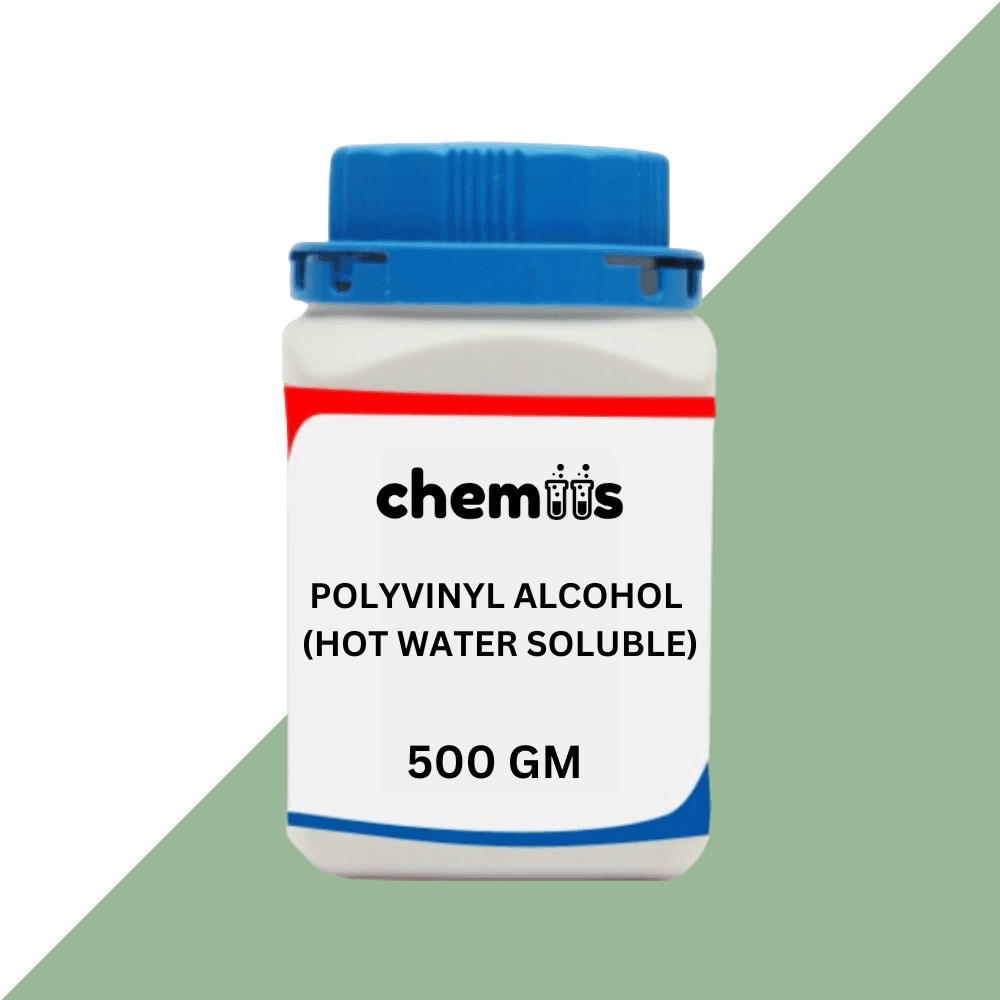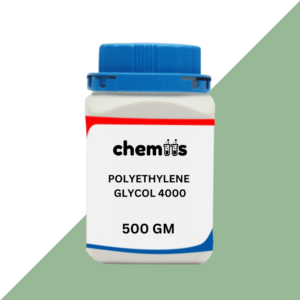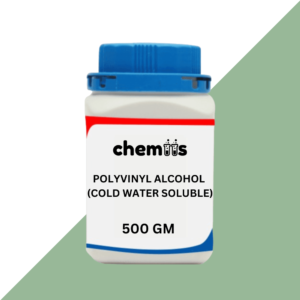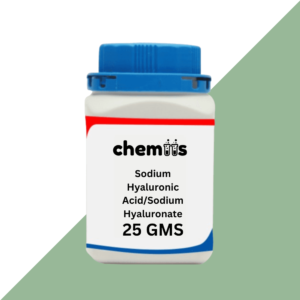Polyvinyl Alcohol (Hot Water Soluble) is a water-soluble polymer with a unique ability to dissolve when exposed to hot water, offering excellent film-forming, emulsifying, and binding properties. It is widely used in a range of industries, including textiles, pharmaceuticals, and adhesives. Known for its biodegradable and eco-friendly nature, PVA is preferred in applications where water solubility and environmental considerations are key.
This variant of Polyvinyl Alcohol has the additional benefit of being soluble in hot water, which broadens its range of applications, particularly in industrial coatings, pharmaceuticals, and textiles. Its hot water solubility provides efficient processing, particularly in controlled release applications and in the creation of films and coatings that can dissolve upon contact with hot water.
Applications
1. Pharmaceutical and Medical Uses
Polyvinyl Alcohol (Hot Water Soluble) is widely used in the pharmaceutical industry for controlled drug delivery systems and in the production of tablets and capsules. Its ability to dissolve in hot water makes it ideal for creating films that can dissolve rapidly once in contact with body fluids or heated environments.
Uses:
- Coatings for tablets and capsules
- Controlled-release drug delivery systems
- Wound dressings
- Ophthalmic applications (e.g., eye drops)
Benefits:
- Biocompatible and safe for medical use
- Enables controlled release of active pharmaceutical ingredients (APIs)
- Useful for creating water-soluble packaging or delivery systems
- Non-toxic and safe for patient use
2. Textiles and Fiber Applications
In textiles, hot water-soluble PVA is used as a sizing agent and for creating water-soluble fibers. It enhances the strength of fibers and fabric but can be easily washed away in hot water, making it suitable for temporary textile treatments.
Uses:
- Textile sizing agents for weaving
- Water-soluble fibers for biodegradable fabrics
- Fabric finishing for improved texture
- Temporary bonding agents in textiles
Benefits:
- Provides temporary strength to fibers without leaving residues
- Enhances fabric durability and texture
- Enables the production of biodegradable textiles
- Easy to remove during the washing or processing stages
3. Industrial Coatings and Paints
Hot water-soluble PVA is used in coatings and paints, where its solubility and film-forming properties provide high-quality finishes that are also biodegradable. This makes it an excellent choice for environmentally friendly coatings in various applications, including wall paints, packaging coatings, and protective coatings for materials.
Uses:
- Coatings for paper and cardboard
- Wall paints and protective coatings
- Water-soluble films for packaging
- Temporary coatings for use in industrial processes
Benefits:
- Provides smooth, clear, and durable coatings
- Enables easy removal through hot water
- Eco-friendly and biodegradable
- Perfect for temporary coatings that need to be removed after use
4. Water-Soluble Films for Packaging
PVA’s hot water solubility is particularly beneficial in the development of water-soluble packaging, including films for single-use applications. These films dissolve in hot water, making them an ideal solution for food packaging, detergents, and other consumables.
Uses:
- Water-soluble packaging films
- Pouches for detergent and cleaning products
- Edible packaging films
- Protective films for electronic components
Benefits:
- Completely dissolves in hot water, reducing waste
- Can be used for packaging consumables like detergents or food products
- Safe for use in food-related applications
- Reduces environmental impact due to its biodegradability
5. Adhesives
Polyvinyl Alcohol (Hot Water Soluble) is used in a variety of adhesive formulations, particularly in the paper, wood, and packaging industries. It provides strong bonding properties and can dissolve in water, which is useful for removing adhesive residues from surfaces.
Uses:
- Paper adhesives
- Wood adhesives
- Packaging adhesives
- Adhesive formulations for temporary bonding
Benefits:
- Provides strong, durable bonds
- Easy to remove with hot water if needed
- Ideal for packaging, where temporary bonding is required
- Environmentally friendly due to biodegradability
6. Cosmetic and Personal Care
PVA is used in cosmetic formulations, such as face masks, eye gels, and other products that benefit from its water-soluble and film-forming properties. Hot water-soluble PVA is especially useful in creating masks and peel-off applications.
Uses:
- Face masks (peel-off)
- Eye gels and facial treatments
- Film-forming agents in personal care products
Benefits:
- Forms a smooth, flexible film
- Non-toxic and safe for use on the skin
- Easy removal with warm water
- Adds to the overall texture and feel of cosmetic products
Safety and Handling
Safety Precautions
Although Polyvinyl Alcohol (Hot Water Soluble) is generally considered safe to handle, the following precautions should be taken:
- Personal Protective Equipment (PPE): Always wear gloves, safety goggles, and protective clothing to avoid skin and eye contact, particularly in industrial settings.
- Ventilation: Ensure adequate ventilation in areas where the product is being handled, especially in powder form, to avoid inhalation of dust.
- Storage: Store in a cool, dry place away from heat sources and direct sunlight. Keep containers tightly closed to prevent contamination and moisture absorption.
- Spills: In case of a spill, sweep up and dispose of the material according to local environmental regulations.
First Aid Measures
- Skin Contact: Wash skin with soap and water. If irritation persists, seek medical attention.
- Eye Contact: Flush eyes with plenty of water for at least 15 minutes. Seek medical advice if irritation continues.
- Inhalation: Move to fresh air. If symptoms like coughing or difficulty breathing occur, seek medical help.
- Ingestion: Rinse mouth with water and drink plenty of water. Seek medical attention if discomfort continues.
Environmental Considerations
Polyvinyl Alcohol is biodegradable, making it an eco-friendly material. It decomposes in natural environments, reducing the environmental impact compared to non-biodegradable alternatives. Dispose of PVA in accordance with local waste disposal regulations to ensure minimal environmental impact.








Harshit Reddy (verified owner) –
Quick and safe delivery.
Hitesh Suri (verified owner) –
All items intact.
Abhay Saxena (verified owner) –
Everything went smoothly.
Lokesh Rathi (verified owner) –
Will recommend to others.
Kavita Nair (verified owner) –
Website is easy to navigate.
Namrata Bansode (verified owner) –
Great customer support.
Meera Kapoor (verified owner) –
Product quality is top-notch.
Siddharth Dasgupta (verified owner) –
Delivered safely and quickly.
Aarav Mehta (verified owner) –
Arrived earlier than expected.
Nilesh Jadhav (verified owner) –
Well-labeled products.